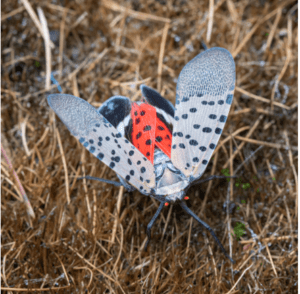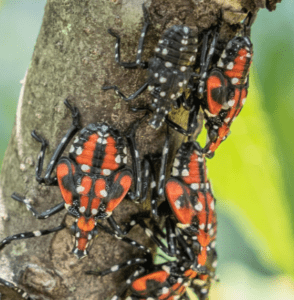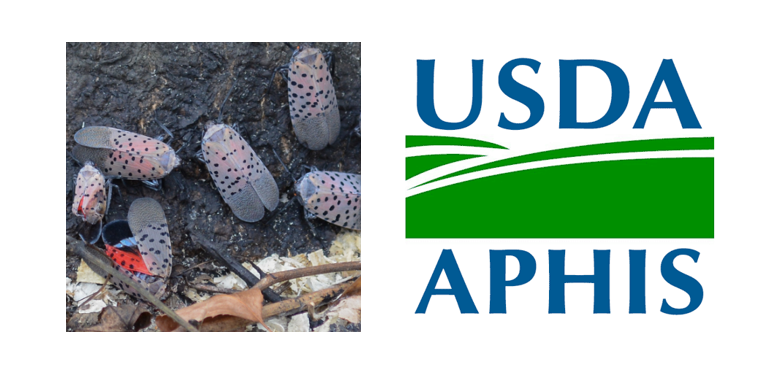Jun 27, 2023Spotted lanternflies focus of USDA working group
The U.S. Department of Agriculture has introduced a strategic plan to battle spotted lanternflies, pest that harms many fruit, vegetable and nut crops.
USDA’s Animal and Plant Health Inspection Service (APHIS) Spotted Lanternfly Strategic Planning Working Group has released the Spotted Lanternfly (SLF) five-year strategy for fiscal years 2024-2028. APHIS assembled the working group in August with representatives from APHIS, the National Association of State Departments of Agriculture (NASDA) and the National Plant Board (NPB).


SLF has spread to 13 additional states since it was first detected in Pennsylvania in 2014. Spotted lanternflies prefer to feed on the invasive tree of heaven, but also feed on a wide range of crops and plants, including grapes, apples, cherries, nectarines, apricots, peaches and plums, almonds, walnuts and cucumbers as well as hops and hardwood trees.
As resources available are limited, developing a strategy in coordination with the States to address this invasive pest is critical, according to a news release.
The working group developed a unified approach to reduce the spotted lanternfly’s spread and impacts through the effective use of available state and federal resources.
“Spotted Lanternfly is an invasive pest that feeds on crops and natural resources. Over the next five years, federal and state partners will work to limit the spotted lanternfly’s advancement as we further scientific research that will help us develop better pest management tools and options,” Jenny Lester Moffitt, USDA Marketing and Regulatory Programs Under Secretary, said in the release.
The five-year strategy prioritizes the following goals:
- Effectively limit the advancement of spotted lanternfly and efficiently respond to its introduction within Federal and State authority and resource availability.
- Support continued scientific research towards practical management and risk mitigation.
- Establish a consistent national and State-level outreach message and educational campaign for the public and industries at risk for spreading spotted lanternfly.


To reduce the spread, APHIS and states will create a framework to prevent human-assisted movement, promote public reporting and early detection, and continuously leverage the latest research and management tools available. The new strategy builds the capacity to combat SLF in areas at high risk of introduction and stresses that SLF management plans be based on the latest risk-assessment modeling data which helps predict where SLF populations may emerge, according to the release.
Federal and State partners will also unite their research resources and share knowledge about SLF to limit its movement and distribution. While leveraging best practices in the field, state and federal partners will prioritize more research on climate and host-plant suitability, biocontrol agents, as well as other effective management tools.
“The National Plant Board believes that this renewed and refocused approach to managing spotted lanternfly will buy us the time needed to solve this plant pest riddle,” Steven Long, working group co-chair and president of the National Plant Board, said in the release.
In May, APHIS hosted a tribal listening session on the strategy to provide tribes insight on the plan and give them an opportunity to provide feedback. The webinar was well received with a few questions about funding, how to respond to the spotted lanternfly on sacred sites, and outreach support for Tribes, according to the release. APHIS will continue to engage Tribes and solicit feedback on the spotted lanternfly management and outreach strategy.















